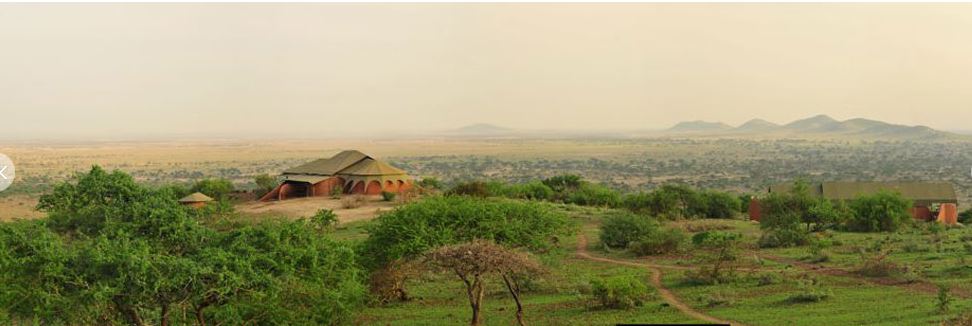Shu’mata Camop

Location: Shu’mata Camp is located at the foot of Kilimanjaro, deep in Maasai land, in an area known as South Amboseli in northern Tanzania. Seasonally the surrounding savannah bush teems with wildlife – large herds of elephant, eland, zebra and wildebeest and Oryx, as well as Grants and Thompson Gazelle. This is not a national park but archaic tribal country where Africa’s wildlife peacefully coexists with the cattle and goats of the Maasai. At the front of the camp bush savannah melts into the slopes of Kilimanjaro, towering above into the blue skies of Africa, so close that on a moonlit night details of the glaciers can be visible when there is no cloud cover. Arrival can be from Hatari Lodge (sister property 2 hours drive), West Kilimanjaro Airstrip (45 minutes drive), Arusha town (3 hours drive) or Kilimanjaro International Airport (3 hours drive). Recommend arrival in the afternoon and try to avoid night transfers.
Accommodation: Five large and comfortable East African tents, in true Hemingway style, line on a hill from which magnificent views lead in all directions, each with en-suite bathroom equipped with flushing toilet and open air shower and running water. Each guest tent is spacious and can be used as a single, double or triple unit, and feature a dressing table, a Hemingway style hanging cupboard, bedside tray stands and a lockable trunk for personal belongings create an atmosphere of the safari life of the 1920s. Each tent has its own veranda with up-lifting views and safari chairs. Shu’mata’s style is a fusion of the last millennium combined with Tanzania’s natural fabrics and bright Maasai colors.
Facilities & Services: Delicious meals are served on a long table with all guests. On foot with Maasai warriors or in game-drive vehicles you are able to get within meters of Africa’s largest mammals, calmly sharing the habitat with the Maasai and their cattle. Experience an early morning excursion to a Maasai boma in the Sinya Plains, where you have the opportunity to get a little insight into the Maasai daily life and tradition.
